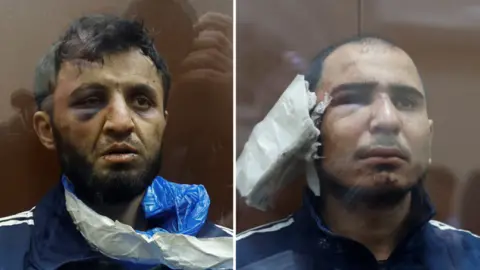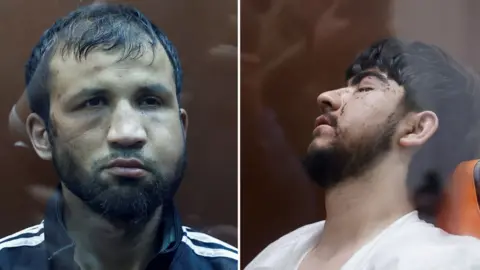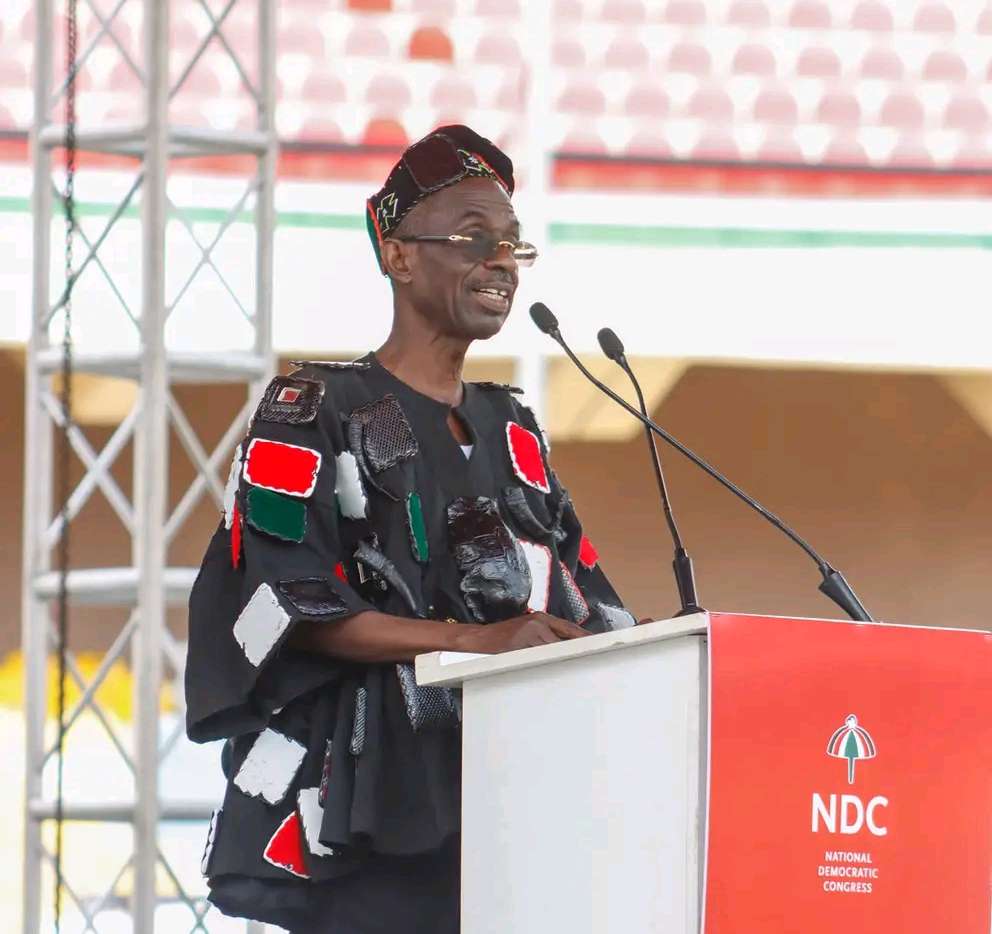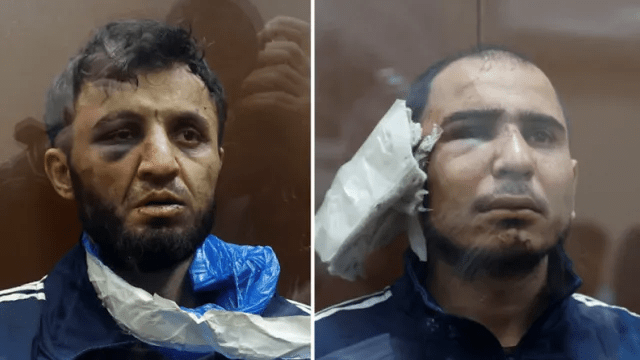Russia has charged four men it says attacked a Moscow concert hall and killed at least 137 people.
Three were marched bent double into a Moscow court while the fourth was in a wheelchair. All were charged with committing an act of terrorism.
The Islamic State group, or IS, said it carried out Friday’s outrage at Crocus City Hall, and posted video.
Russian officials have claimed, without evidence, Ukrainian involvement. Kyiv says the claim is “absurd”.
The four were named as Dalerdzhon Mirzoyev, Saidakrami Murodali Rachabalizoda, Shamsidin Fariduni and Muhammadsobir Fayzov.
 ReutersTwo of the men named as suspects in the Moscow attack: Dalerdzhon Mirzoyev (left) and Saidakrami Murodali Rachabalizoda
ReutersTwo of the men named as suspects in the Moscow attack: Dalerdzhon Mirzoyev (left) and Saidakrami Murodali Rachabalizoda
Video showed three of them being marched by masked police into Basmanny district court in the Russian capital. All appeared injured.
Mirzoyev and Rachabalizoda’s eyes were blackened and the latter’s ear was heavily bandaged – reportedly from it being partially severed during his arrest.
Mirzoyev also appeared to have a torn plastic bag wrapped around his neck.
Fariduni’s face was badly swollen and Fayzov was brought into court in a wheelchair wearing a hospital gown,and appeared to have an eye missing, according to the Reuters news agency.
All were held in a glass-panelled booth and guarded by masked police during their time in court.
A court statement on the Telegram messaging service said Mirzoyev was a citizen of Tajikistan and “admitted his guilt in full”. Rachabalizoda also “admitted guilt”, it said.
All four are to be held in pre-trial detention until at least 22 May, the court added.
 ReutersShamsidin Fariduni (left) and Muhammadsobir Fayzov pictured in court
ReutersShamsidin Fariduni (left) and Muhammadsobir Fayzov pictured in court
The men were arrested hours after four gunmen on Friday night stormed the Crocus City Hall in Krasnogorsk, a northern Moscow suburb, and began firing on some of the estimated 6,000 people who were attending a rock concert. The attackers also set fires which engulfed the venue and caused the roof to collapse.
Russian authorities said 137 people were killed and more than 100 injured.
IS claimed the attack within hours, stating that it was carried out by a branch known as the Islamic State in Khorasan, or IS-K.
It later released graphic footage of the attackers firing on the crowd inside the concert hall. The video has been verified as genuine by the BBC.
However no Russian official has acknowledged the claim, instead suggesting – without evidence – that the attackers were being helped by Ukraine and were arrested in the Bryansk region while preparing to cross the border.
Ukraine’s President Volodymyr Zelensky on Sunday rejected the claims, and his military intelligence directorate said it was “absurd” to suggest the men were trying to cross a heavily mined border, teeming with hundreds of thousands of Russian soldiers, to reach safety.
Seven other people have been arrested in Russia suspected of aiding the attack.
Russia in IS crosshairs
The US warned Moscow earlier this month of a possible large attack in Russia, then issued a public advisory to citizens in the country.
The alert was roundly dismissed by the Kremlin as propaganda and an attempt to meddle in its presidential election.
Washington said after the attack that it had no reason to doubt the IS claim.
It would not be the first time IS and its allies have attacked Russia or its interests abroad.
The group claimed the bombing of a Russian plane over Egypt in 2015 with 224 people on board, most of them Russian citizens. It also claimed a 2017 bomb attack on the St Petersburg metro, which killed 15 people.
Security analysts say the group considers Russia a primary target for a number of reasons, including the country’s role in destroying IS’s powerbase in Syria while securing President Bashar al-Assad’s rule, Moscow’s two brutal wars in Muslim-majority Chechnya in 1994-2009 and the Soviet-era invasion of Afghanistan.
IS-K chiefly operates in Afghanistan and parts of Central Asia and its name is based on an old term for the region.
It is among the most able and active of the IS offshoots, and was responsible for deadly suicide attacks at Kabul airport during the chaotic American withdrawal of August and September 2021.
The offshoot frequently criticises President Vladimir Putin in its propaganda.








































